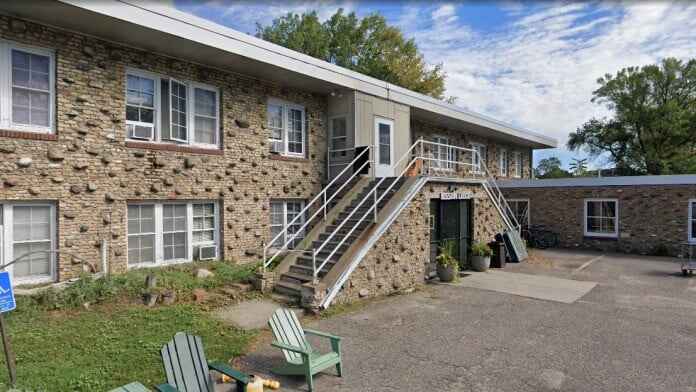About Mission Lodge – Plymouth
Missions Inc. provides an alcohol and drug recovery support program in Plymouth, Minnesota. They provide housing for a variety of people on the path of recovery, including men, women, trans, and nonbinary individuals. Each of the four housing units has a casual, home like atmosphere with simple modern amenities.
Missions Inc. is a nonprofit organization that does not turn away eligible clients if they are unable to pay. They also provide inpatient medical detox services for those in crisis, including adolescents.
Clients come to detox in crisis, seeking clinical assistance with the detoxification process. Withdrawal symptoms can be painful and, without professional assistance, dangerous. Clients in the detox program are carefully observed by medical staff and provided comfort and education during this difficult step of the recovery process.
In addition to clinically managed withdrawal services, clients have access to psychiatric assessments, counseling, nutritional education, support groups (such as NA/AA), and visits from physicians. Clients are only discharged when they are medically stable, after which their care team develops an aftercare plan for them to follow.
Detox is often the first step on the path to recovery. To facilitate this, Missions Inc. connects clients with local facilities and resources so they can continue the journey unhindered. Detox is offered on a first come, first served basis.
The housing services provided by Missions Inc. aren’t traditional inpatient residential treatment plans. Instead, they are residential programs for people transitioning out of treatment plans or who are otherwise at risk. There are four houses total, each serving different clientele: Hart House (women, trans, and nonbinary clients), Mission Heights Supportive Housing (women, men, trans, and nonbinary people), Mission Lodge, and Smith Lodge (both for chronically dependant men and women)
Each house offers structured services with the goal of breaking the cycle of addiction and helping transition into sober living. Programs include counseling, community referrals, advocacy, support groups, and recreation activities. Clients may receive a referral or prior treatment to be accepted.
